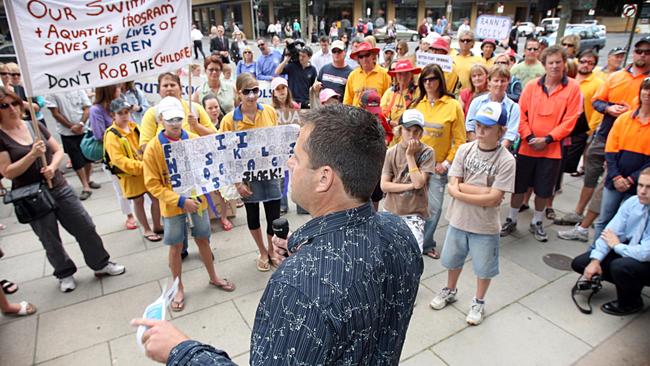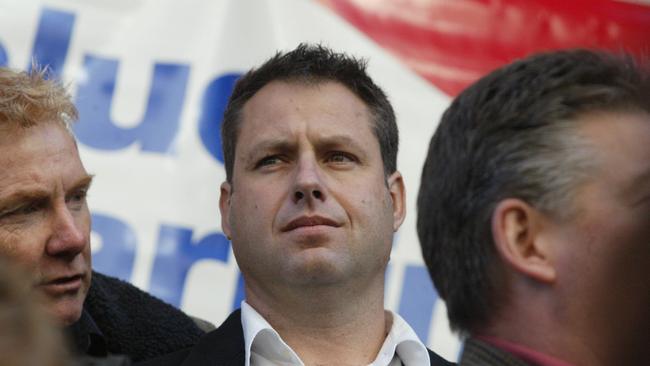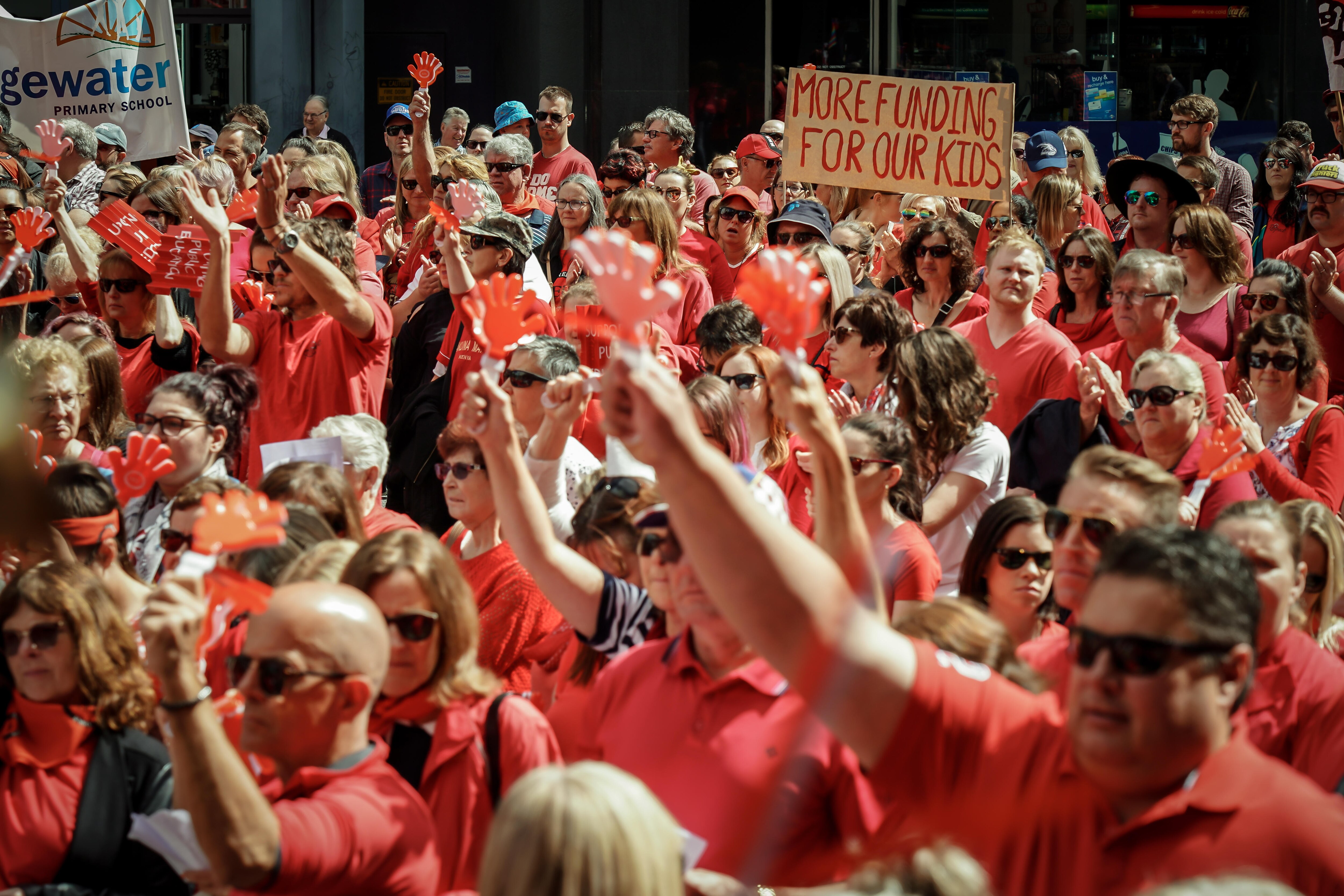Teachers’ strike looms for Wednesday school return, state government to meet with the union
The education union will hold a second meeting today to discuss whether to go ahead with industrial action, after two-thirds of teachers voted to strike on the first day of school.
SA News
Don't miss out on the headlines from SA News. Followed categories will be added to My News.
Two-thirds of the state’s public school teachers have voted to take strike action on the first full face-to-face return to school next Wednesday, claiming a lack of Covid-19 planning.
But the state government hopes that talks on Tuesday can avert the action.
Australian Education Union president Andrew Gohl said a ballot on Monday had backed a strike. Teachers are seeking Covid-19 protection similar to health workers for the start of the school year.
But while health workers have full PPE, N95 masks and face shields, teachers are scheduled to return to classes with only N95 masks. They also want social distancing, sanitisers and cleaning, teaching outside if weather permits and open windows if possible.
Social media posts by teachers have revealed overwhelming dissatisfaction with the state’s Covid-19 return-to-school policy.
Mr Gohl said Monday’s ballot covered all preschool and school members, with almost two thirds supporting the action.
However, on Tuesday morning the union executive will meet again and will consider holding a second ballot, taking in progress on talks with the government since January 19.
“If executive believes sufficient progress has been made, then members will be reballoted to postpone the action,” Mr Gohl said.
A major sticking point has been union concern around planning and policies relating to the use of rapid antigen tests in schools.
SA’s public health officer Professor Nicola Spurrier will also meet with the union on Tuesday where it is expected she will address those concerns.
The government’s return-to-school policy includes a staggered return to face-to-face teaching across all years, maskwearing for most students and a changed ruling over what is a close contact. RAT tests will also be available for teachers and students where required.
Premier Steven Marshall told a press conference todaye that the meeting with Professor Spurrier would go “a long way” to resolve issues with teachers.
“We are in respectful negotiations - the union put 18 or 19 issues that they wanted to address, we responded to them earlier in the week, they’ve got that information now,” he said.
“That ballot was open well before all the issues had been finalised and I am hopeful that this afternoon we can have a successful meeting with Professor Spurrier and provide them with all the information they have been asking for.
“We don’t support the teachers strike and we are going to be doing everything we can to avert that strike.”
Education Minister John Gardner said it was “too early” to discuss strike action before the union’s executive met on Tuesday, taking into account “constructive discussions”.

Asked what contingency planning was in place, he replied: “Well, to be clear, I don’t think that we’re at that stage yet”.
“Irrespective of the result of the ballot this (Monday) afternoon, the union executive has said that they’re going to be meeting again (Tuesday) and discussing further the issues that we’ve been resolving in the last week,’’ he said.
He said the Education Department had addressed most of the 19 concerns the union raised.
“Now, there are some things that we have said from the start that we’re not able to change,” he said.
“We do want to have learning going back for our students on the second of February because it’s critical to their educational entitlements, especially in those transition years.”
He said the union had a chance to hear from chief public health officer, Professor Nicola Spurrier, who would address their concerns.
“If you look back at any sort of industrial actions that have happened in recent years, it’s one thing for those who vote in a union ballot to put forward their opinion, but the overwhelming majority of educators have always expressed a desire to support their students,” Mr Gardner said.
“And I know for a fact that our educators in South Australia are very passionate about their students well being. That is best served by being on the job and supporting that learning in school.”

Mr Gohl said there had been constructive negotiations since the vote was first put to members, but some concerns needed further discussion.
“The government and the department have an obligation to ensure that all learning spaces are safe for children, students and staff and that all reasonable and practicable measures to create safe learning environments have been implemented,’’ Mr Gohl said.
Mr Gohl said teachers were not yet assured; about safety for staff and students, how the school policy will spread of Omicron, be consistent across all schools, address wellbeing and mental health concerns and not impact excessively on workloads.
Mr Gardner said he was “very confident” schools will return in full by February 14.




